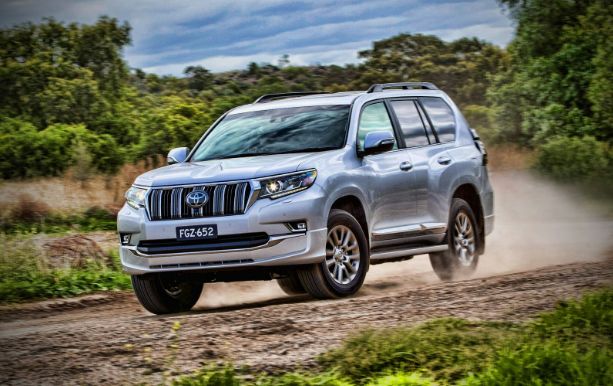In today’s world, owning a vehicle has become essential to our daily lives. However, it is important to consider the expenses associated with maintaining and repairing a vehicle, as they can accumulate rapidly. Therefore, it is crucial to have a strategy in place to safeguard your investment. A vehicle protection plan can provide peace of mind and financial security by covering unexpected repairs.
But with so many options available, how do you choose the best vehicle protection plan for your needs? Discover the essential factors to remember when choosing a vehicle protection plan so you can make a well-informed decision.
Understanding Vehicle Protection Plans
A vehicle protection plan is a service contract that provides coverage for specific repairs and replacements once the manufacturer’s warranty has ended. It is important to thoroughly understand the details of these plans, including coverage, cost, and terms, before making a decision.
Key Factors to Consider When Choosing a Vehicle Protection Plan
-
Assess Your Vehicle’s Needs
Age and Mileage: Your vehicle’s age and mileage are critical to determining your necessary protection plan. Considering more comprehensive coverage for older vehicles or those with high mileage is important. This is because there is a higher likelihood of parts failing.
Manufacturer’s Warranty: Determine when your manufacturer’s warranty expires and what it covers. This will help you identify gaps in coverage that a vehicle protection plan can fill.
-
Determine Your Coverage Requirements
Basic vs. Comprehensive Coverage: Basic plans typically cover major components such as the engine, transmission, and drivetrain. Comprehensive plans offer broader coverage, including electrical, air conditioning, and suspension systems.
Additional Components: Consider any additional components or features in your vehicle that you want to be covered, such as high-tech electronics, safety systems, or luxury features.
-
Research Plan Providers
Reputation and Reviews: Research different plan providers and read customer reviews to gauge their reputation. Seek out providers who have received favorable feedback and have consistently demonstrated a history of dependable service.
Provider Stability: Ensure that the provider is financially stable and has a history of honoring claims. This can be checked through financial ratings and industry reviews.
-
Compare Costs
Plan Costs: Compare the costs of different plans, including the upfront price and any deductibles. Consider how these costs fit your budget and weigh them against the potential repair savings.
Payment Options: Some providers offer flexible payment options, such as monthly installments, which can make a plan more affordable.
-
Understand the Terms and Conditions
Contract Terms: Carefully read the contract terms, including the duration of the plan and the mileage limits. Ensure the terms align with your expected use of the vehicle.
Exclusions and Limitations: Be aware of what is not covered by the plan. Common exclusions include routine maintenance, pre-existing conditions, and wear-and-tear items. Understanding these limitations will prevent surprises when filing a claim.
-
Evaluate the Claims Process
Ease of Filing Claims: Look for a provider with a straightforward claims process. Check if they offer online claims submissions and have a user-friendly system.
Authorized Repair Facilities: Confirm that the provider has a network of authorized repair facilities. This guarantees that repairs are conducted by certified technicians utilizing high-quality parts.
-
Additional Benefits and Services
Roadside Assistance: Many vehicle protection plans offer additional benefits such as roadside assistance, towing, and rental car reimbursement. These services can add significant value to the plan.
Trip Interruption Coverage: Some plans include trip interruption coverage, which helps cover expenses like lodging and meals if your vehicle breaks down far from home.

Steps to Choosing the Best Vehicle Protection Plan
-
Evaluate Your Vehicle and Driving Habits
Begin by evaluating your vehicle’s age, mileage, and overall condition. Consider your driving patterns, such as the distance you cover and the specific conditions of your driving environments. This evaluation will help you determine the level of coverage you need.
-
Identify Your Priorities
Consider what factors are most significant when choosing a vehicle protection plan. What factors are most important to you: comprehensive coverage, affordability, or additional benefits like roadside assistance? Identifying your priorities will help you narrow down your options.
-
Gather Quotes and Compare Plans
Obtain quotes from multiple providers and compare their plans side by side. Look at the coverage details, costs, deductibles, and contract terms. This comparison will give you a clear picture of which plan offers the best value for your needs.
-
Read the Fine Print
Carefully read the terms and conditions of each plan, paying close attention to exclusions, limitations, and the claims process. A clear understanding of the details will prevent surprises and ensure you are fully aware of what you will receive.
-
Seek Recommendations and Reviews
Ask friends, family, and colleagues for recommendations on vehicle protection plan providers. Additionally, read online reviews to see what other customers say about their experiences. Obtaining feedback from actual users can offer valuable insights into the reliability and quality of various plans.
-
Consult with a Professional
If you need help deciding which plan to choose, consider consulting with a professional, such as your mechanic or a financial advisor. They can provide expert advice based on their knowledge and experience.
Conclusion
When selecting a vehicle protection plan, it is important to carefully evaluate your vehicle’s condition, driving habits, and budget to ensure you make the best choice for your needs. By evaluating your needs, researching providers, comparing costs and coverage, and understanding the terms and conditions, you can make an informed decision that provides peace of mind and financial security.
At MotoAssure, their focus is on providing vehicle owners with the necessary information to make well-informed decisions about their protection plans. Their goal is to ensure that you have the coverage required to maintain your vehicle’s optimal performance.








